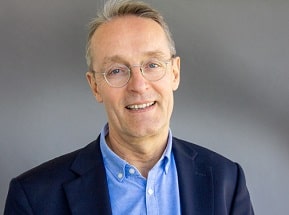
Leading specialist
Biography
Christoph Salat was born in 1960. In 1979, Christoph graduated from grammar school and entered the Ludwig-Maximilians-University of Munich. It is an institution of higher education in Munich, Germany. The University of Munich holds a leading position in the number of scientists and professors and cooperates with all major universities in the world. More than 150 specialties are taught at the university. The hallmark of the university is the opportunity to study a large number of additional subjects in addition to the core subjects, which makes graduates well-rounded specialists. Christophe Salat graduated from the Faculty of Medicine in 1985. And already in 1986, i.e. within a year he defended his PhD thesis on the topic: Modulation of platelet aggregation in vitro in platelet-rich plasma and whole blood. Platelet aggregation plays an important role in clot formation in various bleeding disorders, in research Christophe Salat worked on modifying platelet function for possible regulation in pathological processes, particularly in hematology.
After defending his thesis, Christoph Salat had to leave science for a while, as he joined the army for two years and served as a medical officer in Bad Reichenhalle, a town in Bavaria. When he returned in 1987, Christoph Salat took a job at the Bad-Trissl oncology clinic in Munich. There he gained invaluable experience in treating cancer patients with various forms of cancer, which he later used in the follow-up and treatment of patients at the Grosshadern University Hospital, where he returned in 1988.
In May 1994, Christoph Salat graduated as a doctor of internal medicine (internist, internist). In 1998, Christoph Salat defended his doctoral thesis. He worked in the field of hemostasis complications, i.e. blood clotting problems in bone marrow transplantation, and evaluated the characteristics of the graft response. Christoph Salat also worked within the framework of his doctorate on the treatment of veno-occlusive disease, which develops as a result of hepatic vein obstruction and is most often a complication of bone marrow transplantation. In the year of his doctoral thesis, Christoph Salat was awarded the title of specialist in oncohematology. Also in 1998, Christoph Salat was awarded the title of lecturer in internal medicine. In his work, Christophe Salat had to perform transfusions of transfusion media and therefore received training in transfusiology and was certified as a transfusiologist.
A major life achievement
In 2000, Christoph Salat established his own specialized clinic and day hospital for the treatment of patients with oncohematological diseases as well as other types of oncology. This clinic was an addition to the oncology department of the Red Cross Hospital.
Christoph Salat has selected the best medical and nursing staff at the clinic. The clinic treats cancer diseases such as:
- leukemia (acute and chronic forms)
- lymphomas
- plasmacytomas
- lung cancer
- ovarian, uterine, breast cancer
- pancreatic cancer of the gastrointestinal tract
- cancer in the head and neck area
The clinic, thanks to Dr. Christoph Salat, is equipped with the latest technology. Specialists of the Christopher Salat Clinic apply modern methods of diagnostics and treatment of various types of oncology. Among various types of diagnostics they apply cytological methods, cytochemical methods, immunological methods of research, molecular biological methods of research.
Highly qualified specialists detect oncologic diseases at early stages and carry out the necessary treatment. The main rule of the clinic is a personalized approach to the patient and prescribing treatment strictly according to individual features.
The clinic offers both traditional chemotherapy and bone marrow transplantation. Multimodal therapy is selected for each patient, which includes radiochemotherapy, adjuvant and neoadjuvant therapy. The clinic cooperates with the Nuclear Medicine Clinic, which allows the use of radioimmune therapy as a treatment method for cancer patients.
The clinic provides psychological care to support cancer patients and their relatives.
In addition to inpatient treatment, the clinic has a day unit and can provide outpatient treatment.
Further progress
Christophe Salat does not stop there and continues his scientific work in oncohematology. He participates in international conferences, writes articles and monographs, as well as conducts clinical trials to combat breast cancer recurrence, and selects adequate chemotherapy regimens in combination with other possible methods.
Christoph Salat returned to his alma mater at the University of Munich, where he was appointed professor at the Faculty of Medicine.
The Christoph Salat Clinic is internationally certified according to DIN EN ISO.

